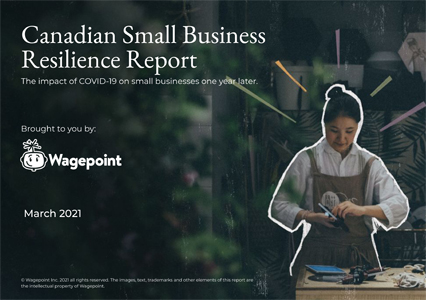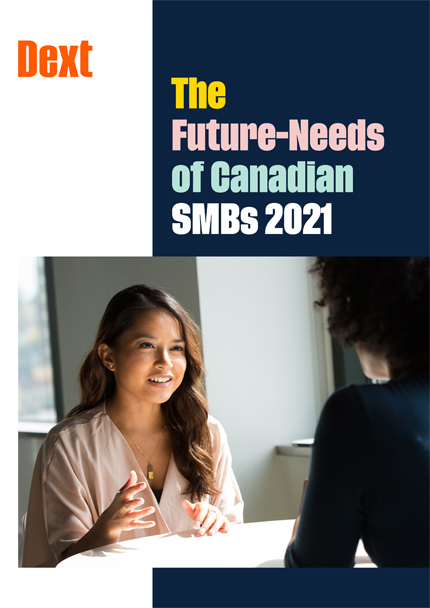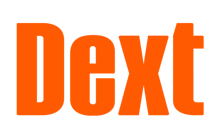How Canadian accountants can help small business recover post-pandemic

SMB surveys from Dext and Wagepoint reveal opportunities for accountants
TORONTO, April 2, 2021 – There is no question that the past year has been a tough one for small business owners and employees across Canada. In March 2020, at the start of the ongoing pandemic, internal data from software provider Wagepoint revealed a jump in record of employment (ROE) requests of 70 times in just three weeks. These terminations coincided with the first of many provincial lockdowns from which the Canadian economy has yet to fully recover.
 |
Download the Canadian Small Business Resilience Report from Wagepoint. |
Yet many small- and medium-sized businesses (SMBs) have proved remarkably resilient, finding the pandemic to be a catalyst of positive change, with the ongoing support of Canadian accountants. According to the Canadian Small Business Resilience Report from Wagepoint, sixty-five per cent of SMBs are optimistic — at least cautiously — their business will recover once the pandemic is over.
“Most small businesses have found ways to respond to radical change by pivoting their business models, adapting their workforce, leveraging relief programs and embracing new technologies in order to not only move forward, but to thrive,” says Shrad Rao, chief executive officer of Wagepoint.
A new SMB survey from accounting platform provider Dext (formerly Receipt Bank), points out that — with 95,000 SMBs appearing every year in Canada pre-pandemic — SMBs are a diverse group. Data from The Future Needs of Canadian SMBs 2021 Dext reveals there are demographic differences in levels of SMB optimism. The growth outlook of younger entrepreneurs, for example, is more ambitious in the short term, with nearly 60 per cent of those aged 18-34 actively looking to grow their business in the next 12 months.
To stay relevant, accountants must be ready to develop new services and ways of working to meet the needs of today and tomorrow, through recovery and beyond. Sixty-seven per cent of Canadian SMBs said the nature of their business had changed, according to Wagepoint. And, also according to Wagepoint, 90 per cent of Canadian SMBs used at least one of the following tactics during the pandemic: shifting to remote work, using government wage subsidies, using new tech or software, shifting to an online model, or changing their business model.
 |
While tax is consistently the most important service provided by accounting professionals, there is significant variation in willingness to pay for services depending on the age group of the Dext survey respondents. (Photo by Blake Wisz on Unsplash.) |
SMB opportunities for Canadian accountants
While accountants play a close role in supporting their clients, the majority of small business owners are not in very frequent contact with their accountant, and most see their accountant as more of a service provider than a partner. However these results vary greatly according to age, with younger entrepreneurs favouring a closer relationship with their accountant, and more likely to view accountants as partners.
This aligns with the trends seen in the data above where younger entrepreneurs favour a wider array of services from their accountant, including those that add more value as well as those that necessitate a closer working relationship.Younger entreprenuers also indicated that they were actively looking to grow their business within 12 months, once the pandemic has ended.
According to the Dext survey, while tax is consistently the most important service provided by accounting professionals, there is significant variation in willingness to pay for services depending on the age group of respondents. SMB owners between 45-55+ have the strongest willingness to pay for traditional services including tax, compliance, audit and bookkeeping. Entrepreneurs aged 18-34, however, have the strongest interest in virtual CFO, supply chain and financial planning services — although their willingness to pay is limited.
Click here to join Dext on April 7th or April 21st for a webinar on how to discover the future needs of SMBs and what your practice needs to do now to prepare to serve your clients better.
 |
Download The Future Needs of Canadian SMBs 2021 from Dext. |
What do SMBs need to grow?
While there is a strong need for support in all areas, the strongest, across short- and long-term views are: 1. managing cash flow; 2, support with tax; and 3, the need to plan ahead, according to Dext. “SMBs are now laser focused on how they generate and manage cash in their businesses,” says Bev Betteridge, owner and CFO of The Corner Office, a finance and accounting firm based in Regina, Sask.
“Cash flow management services are increasing in demand; not only to manage the cash they have for working capital, but also to demonstrate to financial institutions they have the ability to service debt,” Betteridge adds.
The Wagepoint SMB survey echoes this emphasis. “The phrase ‘cash is king’ has definitely been on every small- and medium-sized business owners’ mind since COVID-19 began,” says Dianne Mueller, a partner at Trifold Bookkeeper Advisors. “It has proven to be an unexpected lesson learned around the importance of managing money and planning for times of uncertainty.”
While all business owners displayed strong interest in cash (including payroll services) and tax management services, younger entrepreneurs also showed an appetite for extra support that would help them manage their business and plan for the long term, including risk exposure and supply chain management.
For the majority of value-add services, SMB owners under the age of 44 were twice as likely as those 45+ to be willing to pay for:
- Financial management support.
- Advice on diversifying one’s business.
- Advice and support on international expansion.
- Planning to virtualize one’s business model/operations.
- Increasing data integrity.
According to Dext, this correlates closely with the services offered by accountants to these groups. For example, 30 per cent of accountants for SMB owners between the ages of 18-34 offer a plan to virtualize business models/ operations. This suggests that younger SMB owners are actively seeking out partners who can offer them the support they need. Accountants who can update their services to reflect these needs may have a stronger appeal for new customers.
Clearly, Canadian SMBs have demonstrated resilience in the face of the pandemic and are positioning themselves for growth post-pandemic. In the coming months, they will be looking for support from Canadian accounting firms, accounting practitioners, and corporate management accountants in accounting and finance positions.
The opportunities are there for the taking.
Download The Future Needs of Canadian SMBs 2021 from Dext. Download the 2021 Business Resilience Report from Wagepoint. Join Dext on April 7th or April 21st for a webinar on how to discover the future needs of SMBs and what your practice needs to do now to prepare to serve your clients better.
Colin Ellis is a contributing editor to Canadian Accountant.










(0) Comments